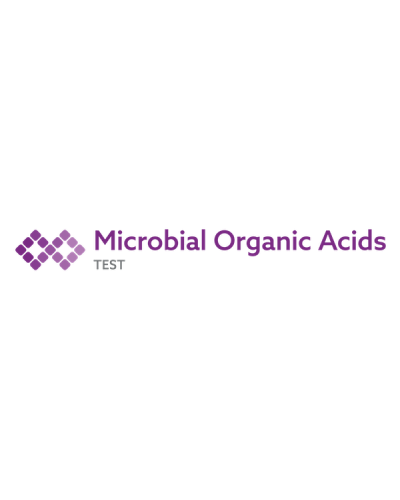Microbial Organic Acids Test (MOAT)
- Brand: Mosaic Diagnostics - Testing
- Product Code: GPL004
- Availability: In Stock
-
$300.00
- Ex Tax:$300.00
Follow-Up to the OAT
Organic acids are substances that result from the metabolic processes in your body. Analyzing these metabolites from different metabolic pathways can immediately provide insight into important areas related to gut health. The Microbial Organic Acids Test (MOAT), included in the Organic Acids Test (OAT), specifically measures the metabolites produced by yeast and bacteria. Elevated values in the MOAT may indicate yeast or bacterial dysbiosis.
The MOAT is particularly useful as a follow-up to the OAT and may be recommended by practitioners looking for a specific abnormality, to monitor certain microbial balances, or to assess treatment efficacy. However, we strongly recommend that the full OAT be performed as the initial screening test.
Sample Reports
The Microbial Organic Acids Test report is a useful resource for practitioners who want to gain valuable insights into gut health, including harmful bacteria, beneficial bacteria, Clostridia species, Candida species, yeast and fungal metabolites, and general markers of dysbiosis that may be impacting the patient’s overall health.
Test Prep and Instructions
MosaicDX offers patient-friendly sample collection kits that simplify testing. Our kits include visual, step-by-step instructions for test preparation and sample collection, personalized shipping cards, and pediatric collection bags if needed. With MosaicDX, patients can easily collect samples for testing with confidence and accuracy.
Details
Why Use the Microbial Organic Acids Test (MOAT)?
The MOAT is a convenient and effective way to evaluate a patient’s gut health by analyzing 21 organic acids present in a single urine sample. These organic acids are metabolic byproducts that can help healthcare providers detect imbalances in gut health, including harmful bacteria, beneficial bacteria, Clostridia species, Candida species, yeast and fungal metabolites, and general markers of dysbiosis that may be impacting the patient’s overall health.
The MOAT is particularly useful for individuals experiencing chronic health issues that may be related to gut imbalances. Healthcare practitioners can use the MOAT to identify specific abnormalities, monitor microbial balances, or assess treatment efficacy. However, the full OAT is recommended as the initial screening test.
Analytes
The MOAT measures 21 urinary organic acids (including creatinine) such as markers for beneficial bacteria, harmful bacteria, Clostridia species, Candida species, yeast and fungal metabolites, and general markers of dysbiosis from one, easy to collect, urine sample.
See full list of markers below:
- Citramalic
- 5-Hydroxymethyl-2-Furoic
- 3-Oxoglutaric
- Furan-2
- 5-Dicarboxylic
- Furancarbonylglycine
- Tartaric
- Arabinose
- Carboxycitric
- Tricarballylic
- 2-Hydroxyphenylacetic
- 4-Hydroxyphenylacetic
- 4-Hydroxybenzoic
- 4-Hydroxyhippuric
- HPHPA (Clostridia marker)
- 4-Cresol
- DHPPA (bene cial bacteria)
- Hippuric
- 3-Indoleacetic
- 3-Hydroxy-3-methylglutaric
- 2-Hydroxyhippuric
- Creatinine


